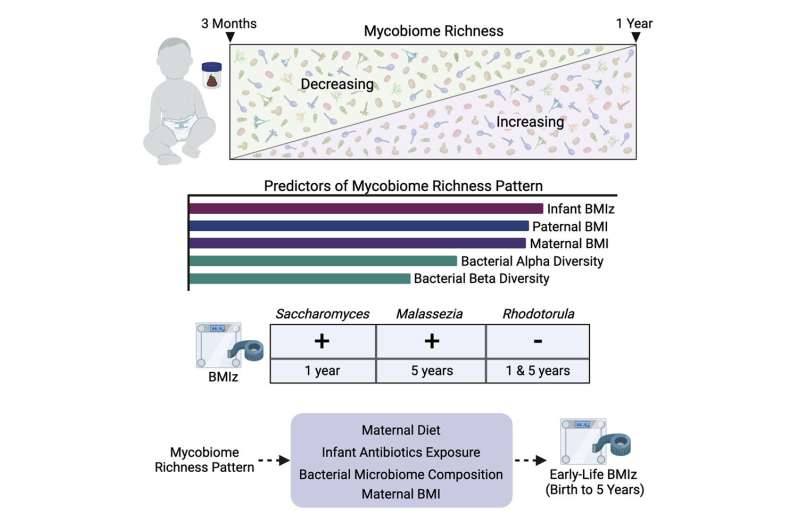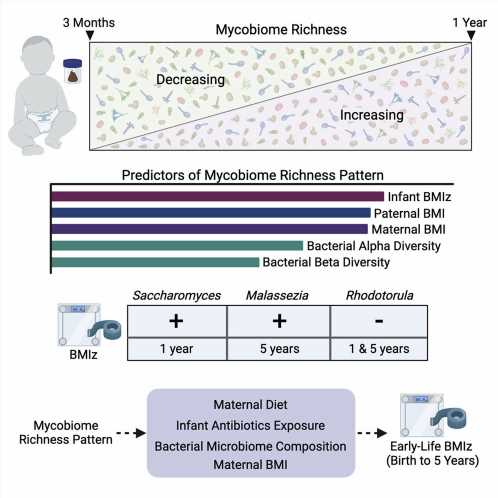
Researchers in the Cumming School of Medicine (CSM) at the University of Calgary in collaboration with the Canadian CHILD Study have found a link between the diversity, or number, of fungal species in the infant gut and the body-mass index (BMI) of infants.
“The pattern of fungal diversity was being reflected in the metabolism, or the body weight, of these children,” says Dr. Marie-Claire Arrieta, Ph.D., associate professor in at the Cumming School of Medicine and principal investigator on the study. “This study sheds new light on some of the factors in the infant microbiome that influence a child’s metabolic health.”
Along with changes in fungal diversity, the study found other contributing factors related to infant BMI. These included the BMI of the mother as well as her diet, exposure to antibiotics, and bacterial diversity in the infant gut. Many studies have shown that bacteria in the intestinal microbiome—the community of microbes that live in the human gut—play an important role in metabolism.
Research has found strong associations between infant gut microbiome composition, infant growth trajectories, and the risk of becoming overweight or obese. However, little is known about the role that fungi, also known as the mycobiome, play in early childhood health and development.
“This is the first study that we know of to show specific types of gut fungi play a role in weight gain and growth in early childhood,” says Emily Mercer, a Ph.D. candidate in Arrieta’s research group and co-first author on the study. “Our findings suggest gut fungi may have important influences on early childhood development, highlighting the need for more research focused on the role of gut fungi in human health during the first years of life.”
The study published in Cell Reports Medicine included 100 infants enrolled in the CHILD Study. The study was not designed to and did not show a cause-and-effect between infant gut fungal diversity and a child’s risk of becoming overweight or obese.
“It is still too early for the study’s findings to be translated into health care recommendations,” says Mackenzie Gutierrez, a Ph.D. candidate in the Arrieta lab, and co-first author on the study. “It will be important for our findings to be explored in other infant cohort studies in other locations around the world, to determine if these findings were specific to our cohort or if they are consistent in other populations as well.”
Arrieta, a member of the Snyder Institute for Chronic Diseases and Alberta Children’s Hospital Research Institute at the CSM, adds the findings show it is important that the gut’s huge ecosystem of microbes is not considered to be a bacteria-only ecosystem.
More information:
Mackenzie W. Gutierrez et al, Maturational patterns of the infant gut mycobiome are associated with early-life body mass index, Cell Reports Medicine (2023). DOI: 10.1016/j.xcrm.2023.100928
Journal information:
Cell Reports Medicine
Source: Read Full Article
